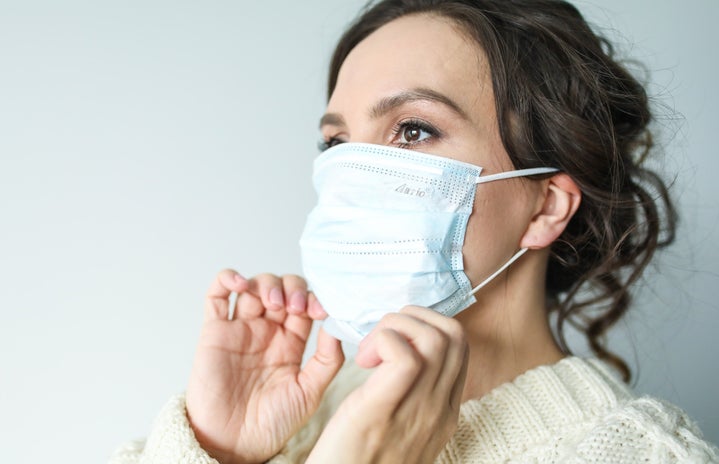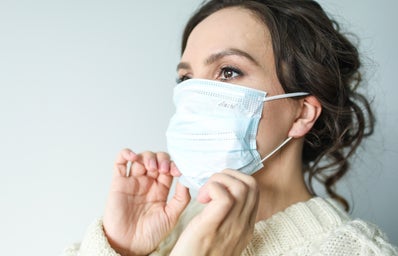As South Africa has transitioned through the stages of lockdown, currently sitting at level 1, face masks have become an essential part of venturing outside our homes. President Cyril Ramaphosa announced that the wearing of face masks in public would become mandatory as of the 1st of May as we transitioned into lockdown level 4.
Why are we wearing masks?
Masks have been considered a vital part of COVID-19 prevention efforts in East Asian countries and have been adopted in conjunction with maintaining physical distancing and frequently washing your hands.
In early stages of the pandemic, The World Health Organisation (WHO) stated that masks were only necessary for health workers, those who were infected with the coronavirus and those who were taking care of the infected. There was no concise evidence that the wearing of face masks were helpful, and WHO was concerned about the potential shortage of medical supplies in healthcare facilities amidst the general public panic-buying personal protective equipment (PPE).
Over the last few months there has been emerging evidence on the effectiveness of wearing masks and why it is encouraged. As of June, WHO changed their stance and advised that governments worldwide should encourage the general public to wear face masks in spaces where physical distancing is difficult and where there is the ability for widespread transmission. Masks also create a barrier that reduces transferring germs to your mouth and nose – in case you accidentally touch your face before sanitizing your hands.
In South Africa we faced some challenges with getting citizens to amend their behaviour to prevent the spread of the virus, but thankfully we have witnessed a considerable drop in our infection rates. It is now a criminal offense to not wear a mask in public in South Africa.

Why do people think wearing a mask is political?
Media coverage in the USA has shown that a notable amount of Americans are showing resistance to wearing a mask. I’m sure we’ve all come across a video on social media of someone throwing a fit in-store when asked to wear a mask. Part of the reasoning for this resistance to wear masks may stem from contradictory statements between health officials and President Donald Trump who, up until recently, noted that he will not be practicing wearing a mask in public.
Given that the President of the United States of America publicly demonstrated that he will not be wearing a mask, it’s very likely that this set the tone for other US citizens refusal to do so. Trump went on to say in an interview that some citizens may wear masks to signal their disapproval of him. This is where the problem comes in as supporters of the Republican Party in the U.S are very likely to take the act of not wearing a mask to show their support. There is a deep divide in the U.S about the ideologies behind wearing masks with stats showing that the majority of Democrats are for wearing a mask. Similarly in the U.K, statistics collected in July showed that only 38% of Britons said that they wore masks in public. In an article by CNBN, social psychology professor Stephen Reicher noted that fewer people had been wearing masks in the U.K due to a lack of clear leadership and guidance. It became compulsory to wear masks in the U.K from the 24th of July with failure to adhere to guidelines resulting in a fine.
In the early stages of the pandemic there were many cases of xhenophobic violence and descrimination against people of Asian descent ranging from hate speech to physical assault. These acts occurred in relation to comments by politicians around the world making use of anti-Chinese rhetoric when discussing COVID-19, with some politicians referring to coronavirus as “The Chinese Virus” or “The Wuhan Virus”. This rhetoric has resulted in xenophobic, specifically Sinophobic, discrimination all over the world – including South Africa. These occurances have not always been physical alterations, but also exist in the form of boycotting Asian-owned businesses. Given that several Asian countries were accustomed to wearing masks before the pandemic, and were the first to encourage them to be worn at the start of the pandemic, the act of wearing a mask may result in them being a target of discrimination.
Thoughts and feelings
Despite the wearing of masks becoming normalised, It’s not a secret that many of us don’t enjoy the act of wearing a mask – it can be uncomfortable and restricting. I’m sure all of us have experienced rushing out of the house only to realise that we don’t have a mask with us – and let’s not forget ‘maskne’. However, I’ve never questioned the act of wearing one if it has the potential to stop the spread. It’s a selfish thought process to disregard the safety of others for your own personal comfort.
South Africa’s resistance to wearing a mask is not as prominent as other parts of the world, though we have had our COVID-19-restriction related protest action surrounding the alcohol ban and surfing. Not to mention South African’s losing faith in our government yet again over another corruption scandal – this time relating to the misuse of COVID-19 funds and the surge of gender-based violence during lockdown. Politicising a mask is the least of our concerns right now.
Remember the pandemic isn’t over just because you’re over it. With lockdown level 1 in place, many restrictions have been eased but always remember to wash your hands, maintain social distancing, and wear your mask.



